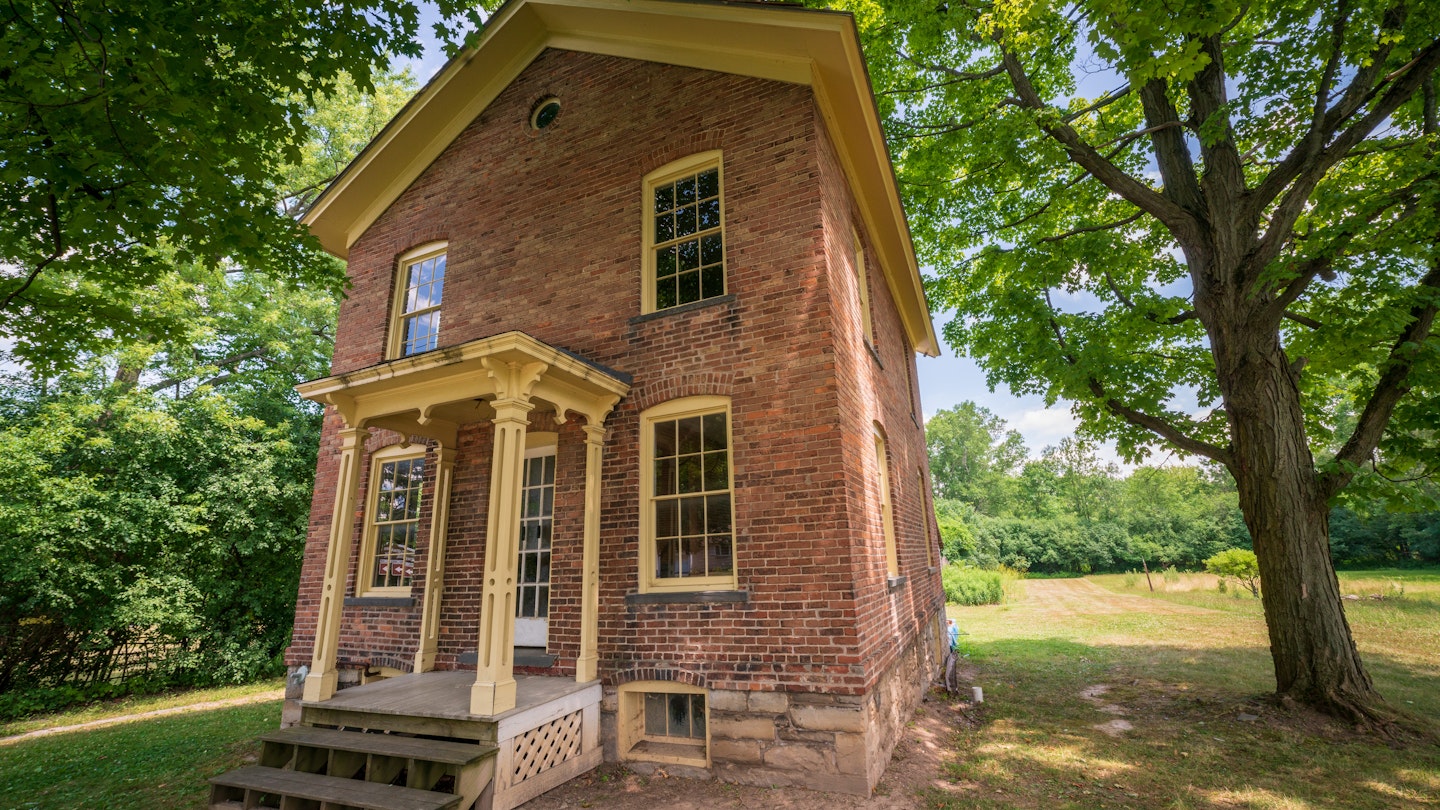In March, the US celebrates Women’s History Month, bringing to the forefront the achievements of women in the country, sometimes in the face of opposition. Across the nation, there are monuments, museums, and other destinations where visitors can learn more about the struggle for women’s rights and the triumphs that women have had throughout history.
Check out these incredible sites to celebrate and learn more about women’s history in the USA.
National WWII Museum – New Orleans, Louisiana
The National WWII Museum in New Orleans offers visitors the opportunity to learn more about women’s roles in the war effort. Using both in-person exhibitions and online content, the museum documents the accomplishments and struggles of the women who contributed to the war effort both at home and abroad.

Rosie the Riveter World War II Home Front National Historical Park – Richmond, California
Just north of Berkeley, discover California’s historical park honoring Americans who worked domestically and defended the home front during World War II. The Rosie the Riveter World War II Home Front National Historical Park takes its name from the cultural icon Rosie the Riveter, an amalgamated female worker who represented the factory and shipyard workers during the war. Here you can take in exhibits honoring American women’s labor of the era, and stroll the waterfront to the Rosie the Riveter Memorial at nearby Marina Park.
Wyoming House for Historic Women – Laramie, Wyoming
Head to Wyoming to learn all about America’s first female voter, Louisa Swain – technically, “the first woman in the world to cast a ballot under democratically enacted laws granting women equal political rights with men,” according to her foundation’s website. You’ll find Swain’s statue outside the Wyoming House for Historic Women in Laramie, an institute commemorating the territory’s early adoption of suffrage in its constitution, as early as 1869.

Women’s Rights National Historical Park – Seneca Falls, New York
The place where it all began, the Women’s Rights National Historical Park is located in a small city in northern New York State. Seneca Falls hosted the very first convention to discuss civil rights of American women on July 19-20, 1848. Leaders and speakers included Elizabeth Cady Stanton, Lucretia Mott, and several hundred other women and men, including Frederick Douglass, the sole African-American attendee and signer of the meeting’s Declaration of Sentiments.
Today, the National Parks Service operates the Women’s Rights National Historical Park, where you can learn about the struggles and triumphs of the Seneca Falls Convention and explore the grounds where it all happened.
Ida B. Wells-Barnett House – Chicago, Illinois
The fascinating story of American hero Ida Bell Wells is yours to absorb in her home in the Douglas neighborhood of south Chicago. Born into slavery in Mississippi in 1862, she was freed by the Emancipation Proclamation as an infant. By her adult years, she’d worked as an investigative journalist, educator, and an early leader in the civil rights movement; and in 1909, co-founded the National Association for the Advancement of Colored People (NAACP). In Chicago, you can visit the Ida B. Wells-Barnett House she shared with husband Ferdinand Barnett, now a National Historic Landmark located at 3624 S. Martin Luther King Drive.

Boston Women’s Heritage Trail – Boston, Massachusetts
The city nicknamed “the Cradle of Liberty,” Boston has a fair share of prominent women’s history. Travelers there can explore the lives and endeavors of bold women who battled for equality, voting rights for all, and the abolition of slavery as far back as the 1700s. Ten self-guided tours are available covering Beacon Hill, Back Bay East and West, Jamaica Plain, and other neighborhoods that were home to key figures including Abigail Adams, Lucy Stone, and Phillis Wheatley – each honored at the Women’s Memorial at the Commonwealth Avenue Mall.
Susan B. Anthony Museum & House – Rochester, New York
Just 50 miles northwest of Seneca Falls, Rochester is a perfect side trip in New York’s Finger Lakes region. There you can drop by Susan B. Anthony’s house, where the legendary civil-rights advocate lived for 40 years – and where she was famously arrested for voting in 1872. Her domicile doubled as headquarters for the National American Woman Suffrage Association, and today you can view her typewriter, desk, and other items owned by one of the world’s great revolutionaries.

Harriet Tubman Home – Auburn, New York
New York State has long been home to progressive thinkers, many of whom formed a safe haven for former slaves and outspoken abolitionists. Among its most extraordinary residents was Harriet Tubman, who escaped from slavery in Maryland in 1849. She spent the next 64 years helping to liberate hundreds more from slavery, including her family. Today you can learn more about Tubman, her family, and her life’s work at the Harriet Tubman Home in Auburn. You can also pay your respects at her grave in the town’s Fort Hill Cemetery, a national historic landmark.
Rankin Ranch – Avalanche Gulch, Montana
Montana granted women suffrage in 1914, and by 1916, elected the nation’s first female member of Congress. Jeanette Rankin took her seat in the House of Representatives before the 19th Amendment was even ratified – and naturally, played an essential role in passing it. “I want to be remembered as the only woman who ever voted to give women the right to vote,” said Rankin. Today you can visit Rankin Ranch, her 14,000-acre ranch and modest homestead in western Montana, a National Historic Landmark since 1976.
National Cowgirl Museum and Hall of Fame – Fort Worth, Texas
Saddle up and ride towards the sunset from Dallas to visit the National Cowgirl Museum in Fort Worth, which wrapped a $5.5 million renovation in 2018. Covering 33,000 sq ft, the museum uniquely honors women of the American West with interactive exhibits, a theater, research library and archive, and galleries that showcase its many thousands of artifacts. At the Hall of Fame, learn about more than 750 pioneering Americans including Annie Oakley, Sacagawea, Georgia O’Keefe, and Laura Ingalls Wilder.





